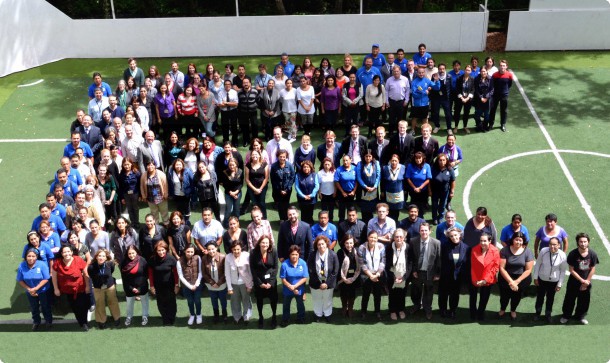Get planning for an effective induction programme for new staff

Get planning for an effective induction programme for new staff
When TIC partners with a school, we not only help with the search and hiring process, we also offer expert advice to support your new recruits, including the induction period. Here are our tips about preparing for induction:
Welcoming new staff to your school always requires careful planning. Welcoming new staff to your international school, who may be new to the country and new to international school and expatriate life, requires even more preparation.
First impressions count and, for international schools hiring expatriate teachers, there’s a clear link between effective induction and the retention of new staff. Not only that but well supported, informed and happy teachers are crucial to the success of your school which is why a carefully planned and managed induction programme is so important.
Preparing for induction
A school induction programme usually happens the week before the start of the new academic year, but can sometimes be spread throughout the early days or weeks of the first term too. Designed primarily for new staff, many schools use their induction programme to also introduce new policies, procedures or curriculum developments to all staff, and provide a chance for the entire new school team to connect.
An induction programme can follow a standard approach, but many international schools choose to create their own to help introduce their ethos, community spirit, locality and international perspective from the start.
A good induction programme will give new staff enough information about the school, and a flavour of what to expect when the children arrive - without overwhelming them. It may also allow for personal and team planning time, and often includes social events. Crucially, an induction programme will set expectations that will form important foundations for life in and out of the school for all new staff.
Settling in
The first few weeks of the new academic year can be a difficult time for new international school teachers who are often caught in a trap of mixed priorities. They will have many immediate personal needs to sort out such as accommodation, finances and banking, transportation, utilities, communication and more. But school is also beginning, and with that comes a great deal of pressure to ensure the first few weeks in the classroom are planned and well prepared.
New teachers must be informed that, regardless of their own personal priorities, this is a vital time to focus on the needs of the school. It’s the time of year for all the staff, both new and old, to get to know and embrace new structures and systems, and to learn to work together as a new team to achieve the school’s philosophy and mission. It’s a time for everyone to reacquaint with important safety and security procedures and policies. And to prepare for a successful, learning-focused year ahead for all students.
If they feel they are being supported organising their essential personal priorities, then new teachers are usually fully appreciative of the demands of a new year in a new school.
Supportive induction
Some of the most successful induction programmes are spread over a period of weeks or even months. This allows new teachers time to get to know the school and its community in a way that helps them to develop a clear understanding at a pace they can cope well with.
Many schools assign one or more mentor to each new teacher. These are often existing staff members and spouses with similar interests or circumstances. They can help with local as well as school information, and are usually very willing to offer advice and support regarding accommodation, travel, socialising, shopping, and general help during the settling-in period. Other mentors can also be assigned to help with specific areas of school life such as curriculum, subject focus and assessment approaches. Other staff members can be assigned to lead training sessions to introduce all new recruits to school-wide policies and activities.
An induction programme shouldn’t only be about standards, procedures and utilitarian needs. Some schools include cultural tours; basic language training; professional development; local sports, arts and social tasters; collaborative planning; and launch group incentives within their induction programmes. These can be excellent team-building experiences as well as providing fun ways for new recruits to get to know the wider staff and acquire valuable local and school knowledge.
When life settles down
The heady first weeks in a new country and new job may well be stressful, but they’re exciting too. It’s once this initial excitement has abated; when the reality of missing home, family and friends, combined with the challenges of settling into a new culture hits that can be the most difficult time for new expatriates. A school induction programme can actively prepare for this period by providing access to the school guidance counsellor or human resources representative after working hours, and by ensuring new recruits are participating in all-important social activities within and beyond the school community.
The more support that the school can offer throughout the early days, weeks and months, the better the settling-in period will be for all parties.
 Design Technology Teacher
Design Technology Teacher Physics teachers
Physics teachers
